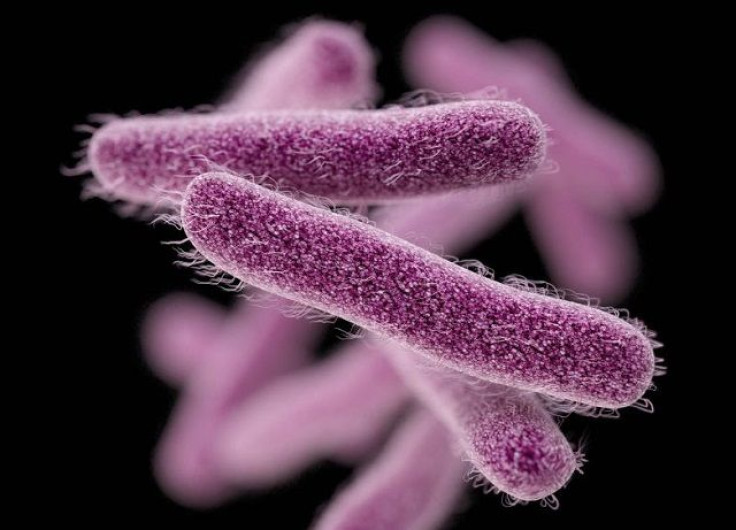What Is Shigella? Flint Water Crisis May Be Responsible For Bacterial Illness Outbreak

In the town of Flint, Michigan, it seems that when it rains, it pours.
Earlier this week, the Genesee County Health Department announced that the county has seen an unusually high number of residents coming down with shigellosis, a typically foodborne disease caused by four different strains of the Shigella bacteria. Out of the 85 cases so far in the county — the highest toll in the state this year — about half have occurred in Flint, a struggling rural area already besieged by the lead poisoning of its water supply that began in 2014. The neighboring Saginaw county, which borders Flint, has similarly faced an uptick of cases. Health officials believe that Flint’s water crisis has inadvertently aided the outbreak, thanks to residents being afraid to regularly wash their hands or otherwise maintain their hygiene.
"People aren't bathing because they're scared," Jim Henry, Genesee County's environmental health supervisor, told CNN. "Some people have mentioned that they're not going to expose their children to the water again."
Shigellosis is the most common form of dysentery, an acute inflammation of the intestines accompanied by painful cramps and bloody diarrhea that lasts about a week. Though the disease is rarely fatal in the developed world and sometimes doesn’t even cause symptoms, it is highly contagious, often spreading when infected fecal matter contaminates people’s food or water. As is common with foodborne illnesses, shigellosis is most dangerous for people with weakened immune systems like the very young and old.
There are around 500,000 cases of shigellosis annually, according to the Centers for Disease Control and Prevention, a rate that hasn’t changed much in the last decade. What has changed is the growing number of cases that are becoming resistant to antibiotics. In 2013, the CDC labeled drug-resistant shigellosis a serious threat to public health, with 27,000 resistant infections estimated annually.
Unfortunately, the very same things that Flint residents have relied on to avoid contaminated water may be increasing their chances of catching the disease. Aside from not washing their hands, many have turned to freely donated baby wipes to clean themselves, likely unaware the unchlorinated wipes do little to kill Shigella bacteria, Henry told CNN. And while hot water can get rid of Shigella and other germs, many are conserving their hot water use over fears that it may damage their filters, likely an unnecessary precaution.
Much like an earlier outbreak of Legionnaires’ Disease that struck Flint in 2014 along with the water crisis itself, there has also been a sense of neglect from government agencies further removed from the town. Henry complained that the Michigan Department of Health and Human Services (MDHHS) took longer than needed to get involved, only jumping into the fray and coordinating with the CDC in September.
"However, for weeks the state MDHHS stopped communicating and assisting [the county] regarding all disease investigations, including Shigellosis," Henry told CNN. "This action directly compromised the safety and health of our communities."
The MDHHS has wholeheartedly denied these claims or that they've delayed their response.
For the time being, the Genesee County Health Department has begun a public health campaign to get residents washing their hands again, alongside other basic tips on how to prevent or stem the tide of shigellosis.



























